Fitness
It’s been a long time in the making, but what you are looking at is the new and much-improved startingoveratsixty.com. Everything that you like about the site is still here (weekly blog posts and all the past posts are here for you to read anytime). But, there are more options now:
- Premium, monthly and weekly content for those of you who want to go a little deeper and create change in your life.
- A Private Facebook Page for members who want to be part of a community of single women 50+, to share ideas, issues, struggles, and solutions with each other, but not with the world.
- The opportunity to work one-on-one with Paula to create a roadmap toward living the life you always envisioned for yourself as a single woman 50, 60, 70 and beyond.
Starting Over at Sixty Can Now be Your One-Stop-Shop
I want you to know that you can come here for help and inspiration: this can be the place where you can find some answers and offer solutions for your Sisters.
We are all in this together, so let’s make this the best time of our lives!
Free for You
For the month of April, you can be part of the Sisters Program free! Just drop me an email (paula@startingoveratsixty.com with your email address and name and I will add you to the Facebook Page.
Starting Over at Sixty is fresh and new and lively, just like you! Take a spin and let me know your thoughts, send me an email to get you on the Private Facebook Page and just enjoy the new content.
Welcome!
Read MoreAs I am sure you have heard, it is important to keep your core strong. As we age we lose some of our balance, and without that important balance we fall and trip and have a hard time getting in and out of chairs. You may not notice it now, but just wait, it’s coming. So, if you are like me, you want to do everything you can to stay strong throughout your core so you need less help moving in the years to come. Even if you are someone who never exercises (and if you don’t exercise this is even more important for you to get started), improving your core strength is critical for your future. So, I grabbed my friend Nano Anderson (Cuffed by Nano, The Butcher Shop Fitness) to help demonstrate a couple of key moves that will help you strengthen your core and maintain your balance. We shot this at The Butcher Shop, a Lagree Studio, so you could see the moves from all angles. Let me just say that if I can have my picture taken next to Miss Nano you know I think this is important! I hope you will add these to your morning routine to improve your life in the future.
How You Can Keep Your Core Strong. Start with a Plank, then Make It Harder
You can start out with a basic plank, which isn’t easy. Put your hands and feet on the floor, and straighten out your back. As with every exercise here, suck in your tummy, trying to touch your spine with your belly-button. If you can hold this for 30 seconds, that’s a good start. Continue to increase your time until you have reached one minute. Then, to change it up and take it further, add in a one-armed plank for 15 seconds then switch arms. Always protect your back by sucking in your gut! If you haven’t worked out your abs in a long time, you may need to start your planks on your knees. And, remember, it’s not where you start, it’s where you finish.
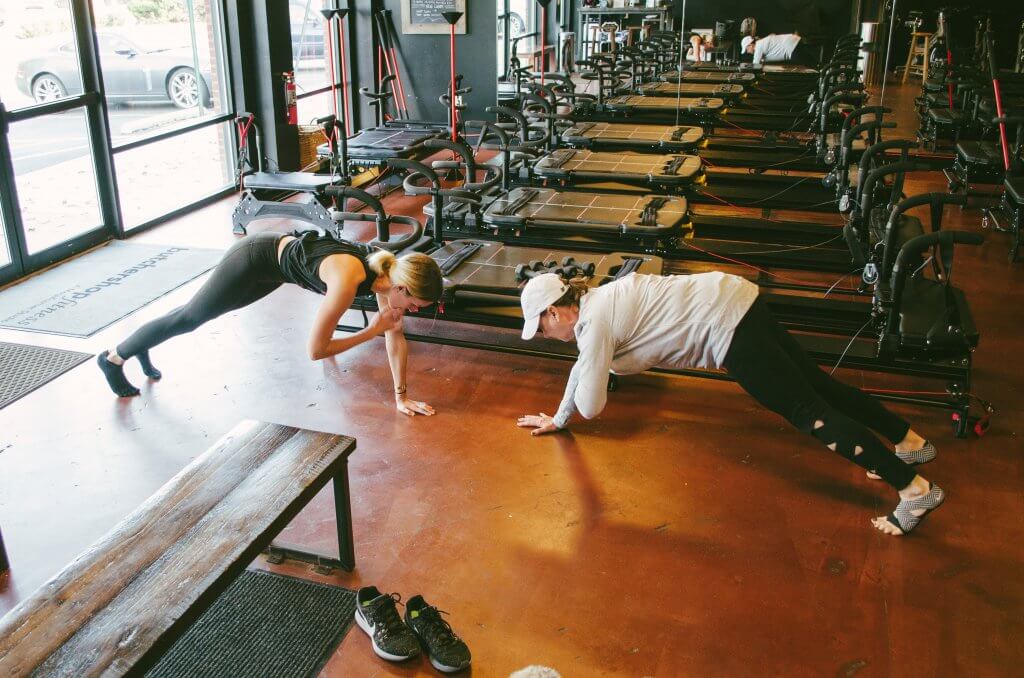
Push-Up
Push-ups can be done at a number of different levels. Nano and I are just showing you a few. I have my hands raised to make it a little easier and Nano is all in with a version of the real deal. So while I am starting up in the air, my goal is to do what she is doing. You can modify the push-up by putting your hands on a wall or a kitchen counter to start, then slowly move your hands down toward the floor, or as I like to say, you go from being a Paula to being a Nano! Remember, the only way to do these is with your tummy sucked in to protect your back and strengthen your core. Here are a few examples to follow.
Twist and Shout
This exercise is tough but effective. Sit on your bottom and bend your knees with your feet flat on the floor. Lean back, hinging at your bottom, as far as you can go without putting a strain on your back. Again, suck that belly-button into your spine. Now, twist one direction then another, slowly. You can cross your arms at your chest, hold them out in front of you or even add a small weight like my friend Nano is demonstrating. Keep going as long as you can and increase the number over time. If you aren’t feeling this one you aren’t performing it correctly! It is a killer but effective. Take a look below.
Superwomans
The name says it all and this is great for your lower back. It is pretty simple. Just lay on your stomach, relaxing your body. Then, lift your arms and legs off the ground, pointing everything, really reaching your fingers and toes as far as you can. You will actually feel like Superman. Tighten your abs. Count to ten, then lower for a few seconds and do it again. Really hold your tummy in and feel that great stretch. Maybe you can perform some superhuman good deeds while you are at it!
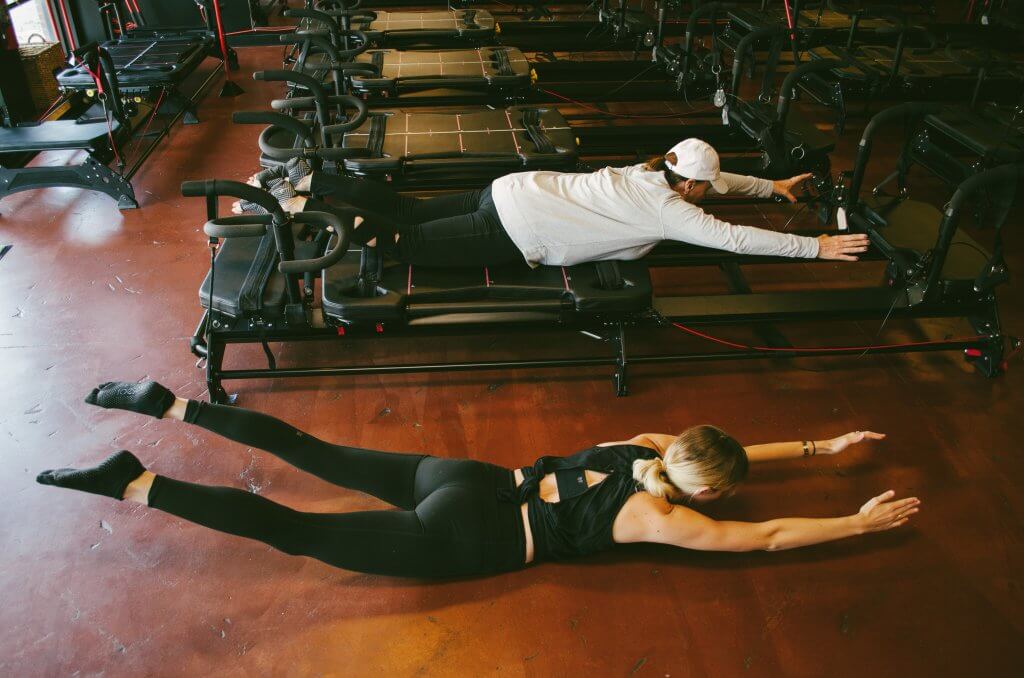
Crossover Balance Move
The mere mention of this exercise by my trainer makes me start to cry. It is nearly impossible for me, but important. And, when you get just one done from start to finish you will be so proud of yourself. Stand on your left foot with the right arm in the air. Lift the right foot behind you and use it to help you balance. Slowly bend over and try to touch your left toes with your right hand. If you are like me you will have to try about eight times even to get this far. Then stand up straight again, with your arm overhead. When you have completed eight, go to the other side. The only good thing about these for me is that every once in a while I can do them all without having to put the other foot on the ground and I am elated.
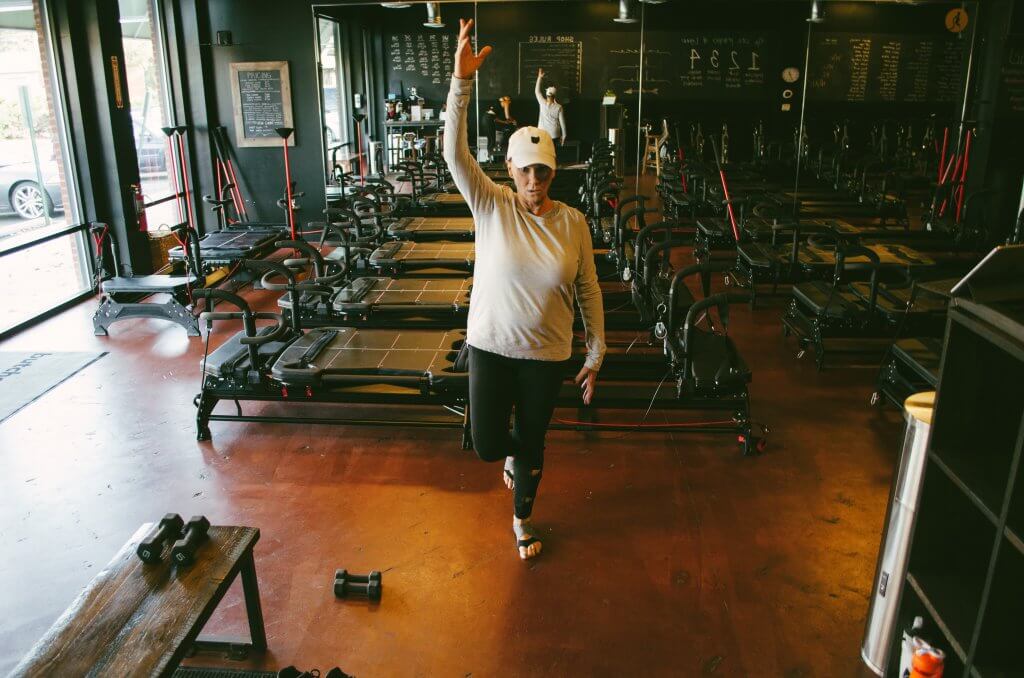
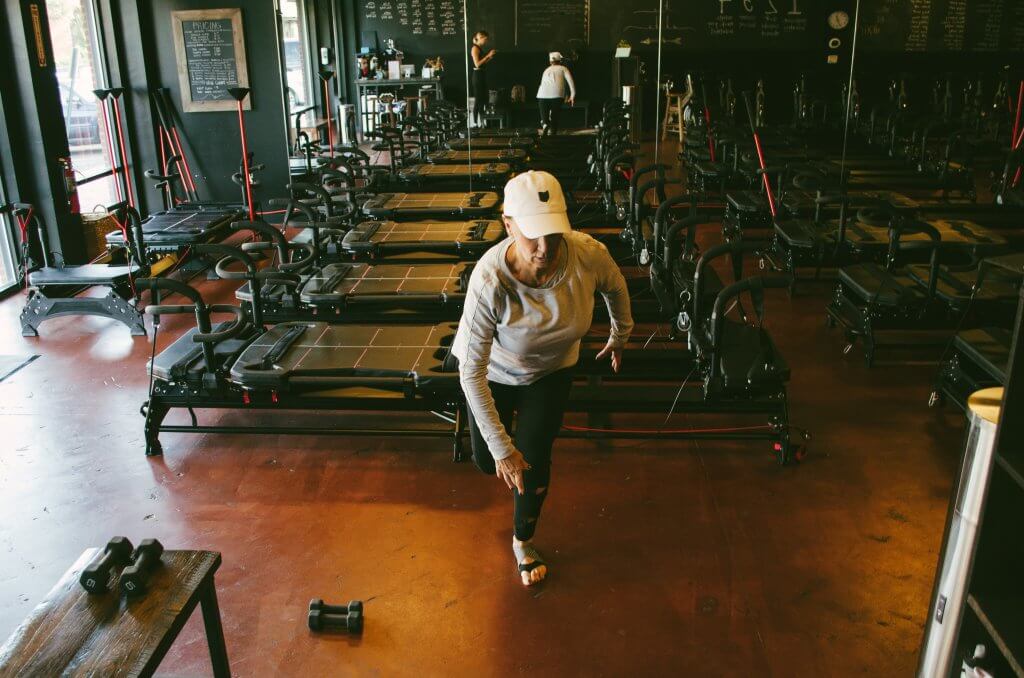
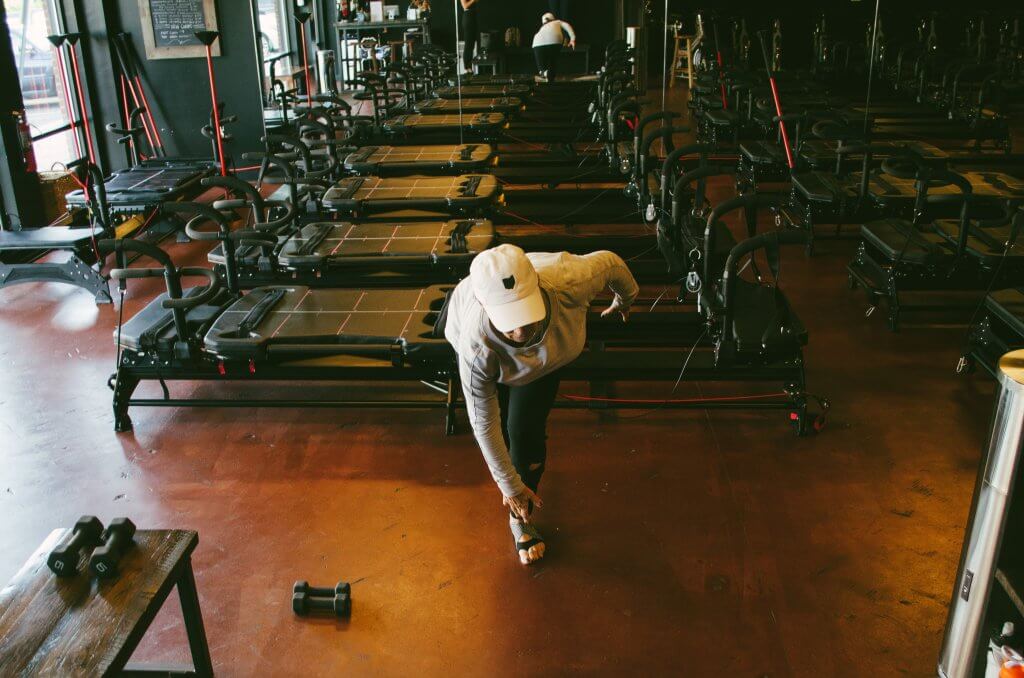
If you do nothing else over the next month to six weeks, challenge yourself to do 10 minutes of core work every other day. That’s not much. I can’t tell you that you will look thinner or weigh less or appear chiseled, but I can tell you that it will make a difference down the road.
Read More
I was attending a conference for bloggers last month and a woman, who was closer to my age than most of the attendees, sat down next to me and we started to chat. She told me that she was from Canada and had developed a product that stops women’s’ breasts from bouncing when working out, especially running. I am a D cup, reduced from a DD cup so I was all ears. I do run a little and while I always thought that my super-duper sports bra kept me in check, I recently passed by a store window and got a glimpse of my moving reflection and it was just not the case. She said she would love to send me one and began looking in her big bag for a measuring tape. I told her my chest is 43″. “How do you know that,” she asked me. I explained that I am a knitter and we know these things. She offered to send me an extra-large Buband right away. I was skeptical.
About a month later I received my Buband and was ready to try it out. It came in an envelope with no instructions. I was putting it up under my boobs, then straight across my boobs and thought it was another useless accessory. I then went online and took a look at the video on their website and realized that I was trying to use it “upside down.” If you are interested, watch the video by going to the link below and all your questions will be answered. The Buband goes above the breasts, not below. It doesn’t hold them up, it forces them down, actually restricting movement. I did a lot of jumping around and running in place in my bathroom without my Buband creating a visual in my mind to compare (not a pretty visual, but a visual nonetheless), then did the same thing with it on. There was a huge difference, night and day actually. I went for a run and I am sold. The Buband does what it promises, it holds the breasts in place for running and other sports. It is a game changer for those of us who have had to wear more than one sports-bra at a time, or even bind our breasts to prevent painful and embarrassing bouncing.
The price is just under $40. Hooray for Buband!
https://buband.com/pages/how-it-works
Disclosure: Starting Over at Sixty received compensation, in the form of product, from the company whose product we reviewed. We test each product thoroughly and give high marks to only the very best. We are independently owned and the opinions expressed here are our own.
Read More
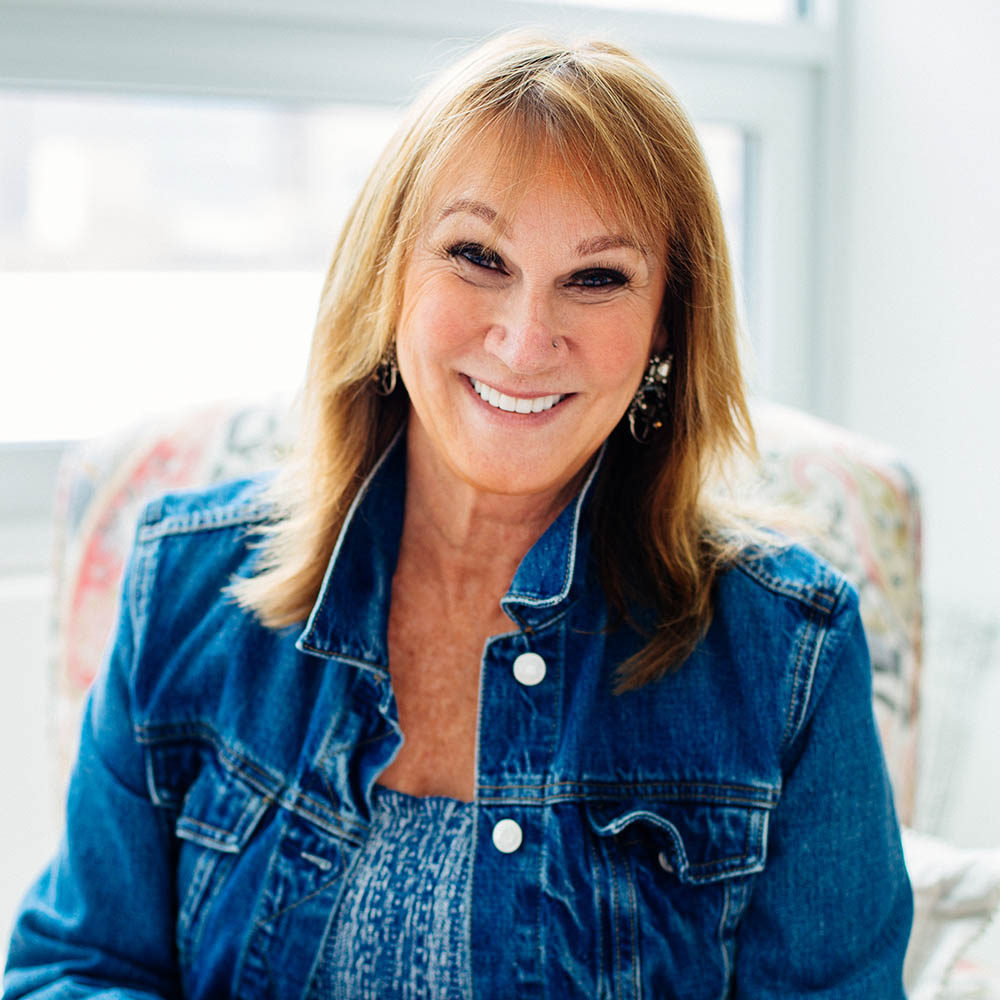
Search through my blog posts

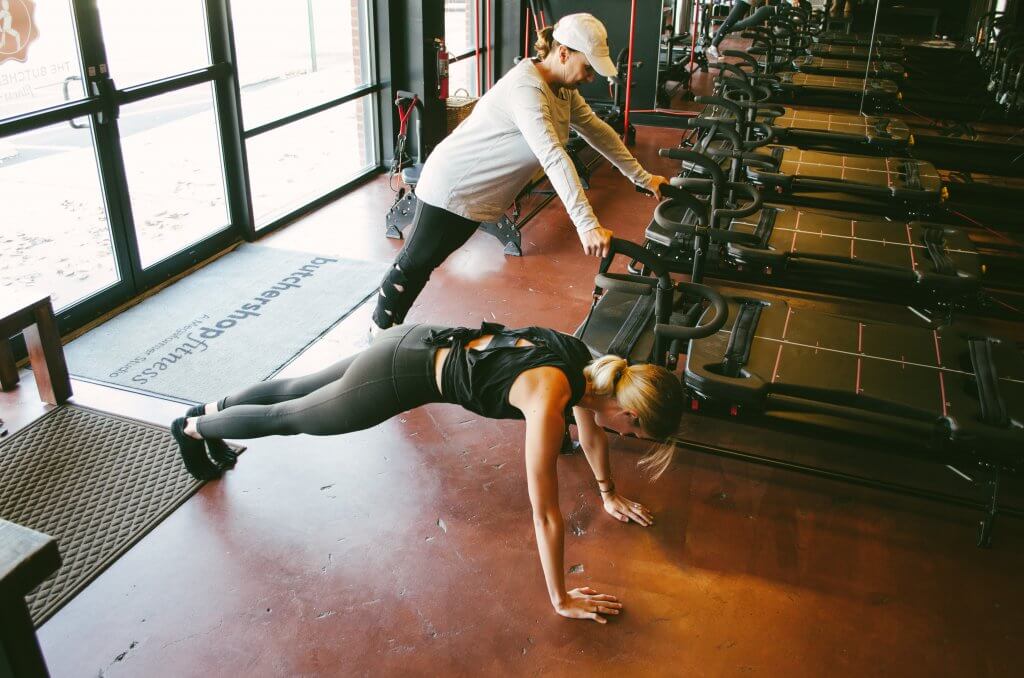
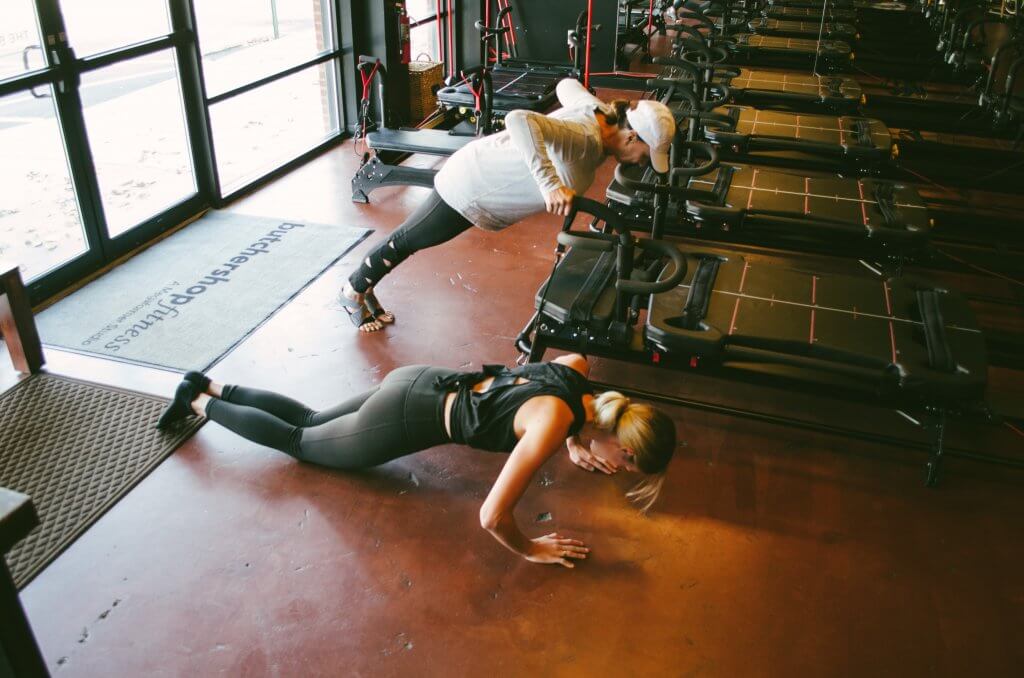
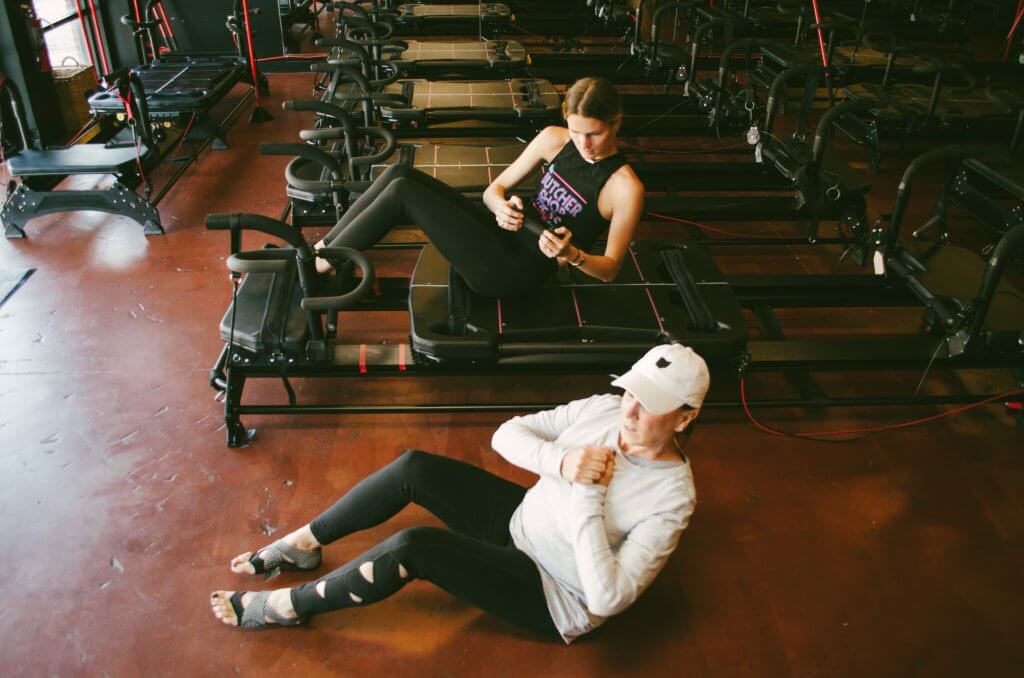
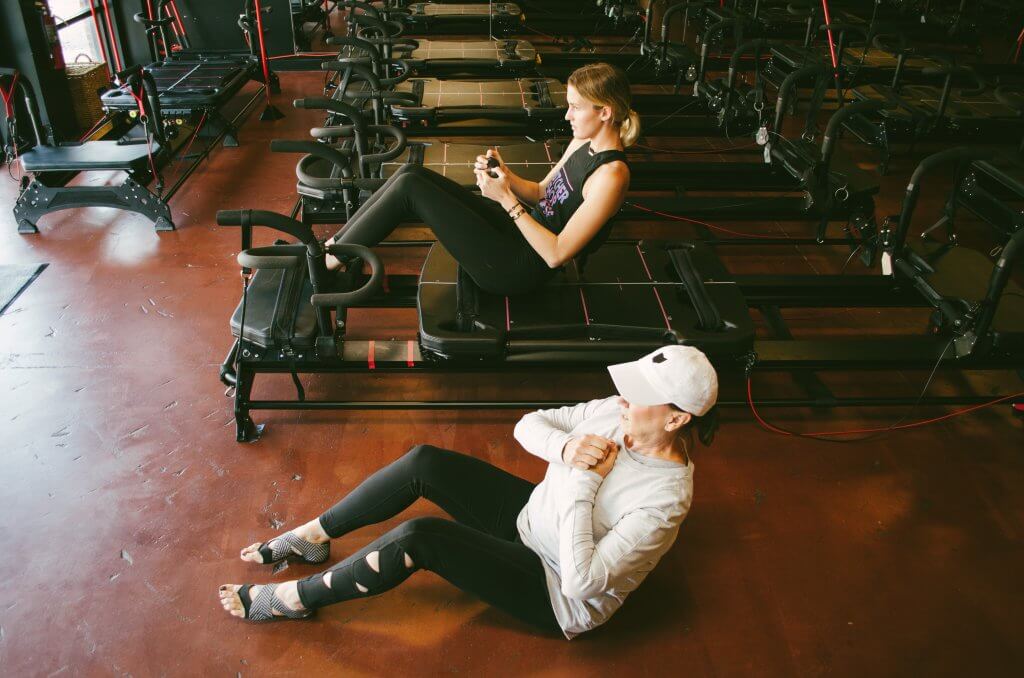
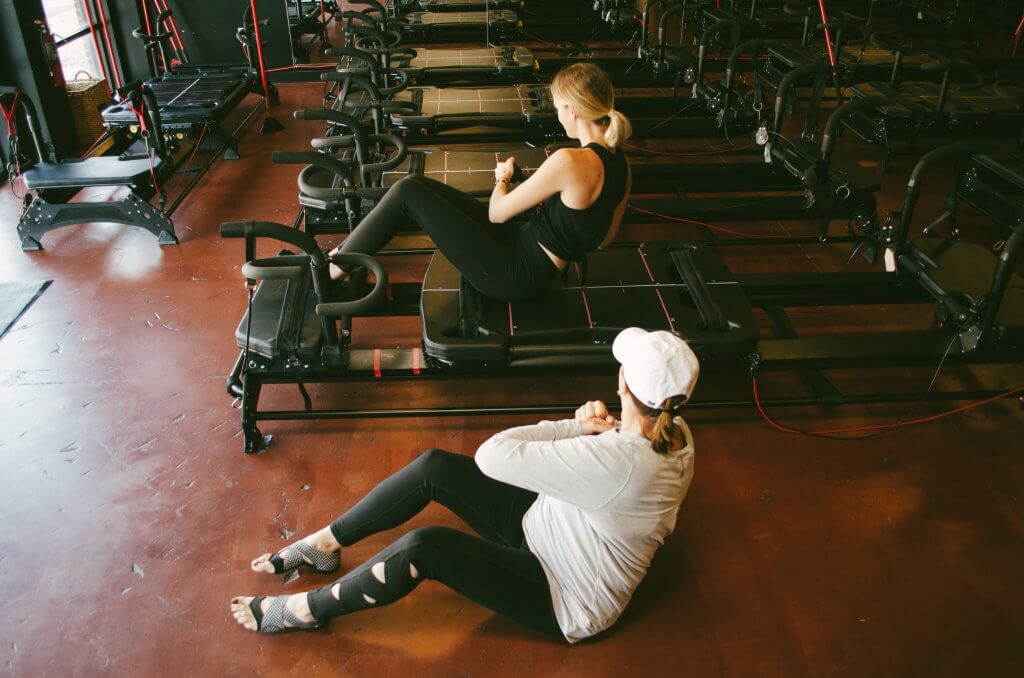
Diane LeMay’s Escape from Alcatraz Triathlon
After completing her first Ironman 70.3, Diane LeMay took a couple of weeks off. She needed a new goal. When she met with trainer Kim Clark, Clark asked her about her interests. LeMay, as a seminary student, hopes to become a member of the clergy and work in the prison system. What could combine a triathlon and prison? Escape from Alcatraz Triathlon, with a 1.5-mile swim, an 18-mile bike and 8-mile run!
It was October and the event was coming up in June so there was no time to waste. LeMay’s training was much more intense this time around. It included endurance swimming much more than her original training schedule. She swam 2- 2.5 miles often to get ready for the race. For the cycling portion of the race, LeMay used a virtual trainer several times to help her become familiar with the course, which she found helpful. Recognizing landmarks gave her a mental edge, she thought.
The run in the Alcatraz race incorporates all types of terrain, including sand, trails and roadways. And, there is the dreaded sand ladder at about mile 4.5. To be able to make it up the sand ladder, LeMay had to work on lifting her legs and knees, so she practiced on a set of 148 stairs: she conquered about 1500 steps every other week to get those muscles strengthened. In the race, once you get through the sand ladder there are still about 3.5 miles to run. The training was intense but she felt well prepared. LeMay felt that it was necessary to take a couple of weeks off of work just to focus on her training, so she did.
LeMay doesn’t like to get to a race too early: she gets nervous. So, she went out on Thursday and planned to get in a practice swim in order to get used to the 50-degree water temperature and the waves and to get used to her wetsuit. During her practice swim, LeMay got caught in a riptide. She was swimming forward but going backward. She put her hand up for some needed help from one of the kayak guides, but when it reached her, the man in the kayak said, “You are never going to make it. You have to turn around and swim to the other beach.” Then he was gone. She couldn’t see the other beach. She thought she was going to die right then and there.
LeMay felt like she was going to be OK, but she was taking in water. All the other swimmers were gone. Two women saw her from the dock and began yelling to her that they were going to get help, but she couldn’t hear them. She just kept screaming, “Don’t leave me.” They didn’t. They kept talking to her, and even though she didn’t know what they were saying, it was a relief to know that someone had eyes on her. Soon, a man in a kilt (yes, a kilt) came out on a paddleboard. He said to her, “Your swim is fantastic and your form is great. I am going to paddle next to you and you are going to be fine.” And, she was. When she got out of the water she began to cry. She never saw any of them again.
Processing What Just Happened
Walking the 2.5 miles back to her hotel she had to process what had just happened: it was almost unreal. She knew if she didn’t get back in that water on Saturday for another practice swim she would never get in on Sunday for the race. “I had to slay that dragon,” LeMay said, who went back to her hotel and read a book about “reclaiming your badass.”
The next morning the same group of swimmers was ready for another chance at a practice swim. LeMay told one of the women who was working as a guide, about her experience in the water on the day before. “That woman was so comforting to me and she told me she would have me in her sight for the whole swim,” she said. Whether or not she did was unclear but it didn’t matter. LeMay felt like the woman had her back the whole way, and as hard as it was to make herself jump into that water, she felt excited when she did, she felt free. And, she swam the entire course, coming in with twenty minutes to spare before the cut-off. “I was on Cloud 9,” she said.
Sunday, the Coast Guard made the announcement that the swim portion of the race was canceled: the tide was not conducive to swimming and was unsafe. The race would start with cycling. One woman near LeMay had been trying to get into the race, a lottery, for ten years. LeMay felt so lucky that she had done the swim the day before: now she knew she had accomplished it, even though it wouldn’t be part of the race.
Plan B
The race was unlike any other: they had to bus the participants to the bikes, wetsuits had to come off in 50-degree weather and the races were timed because organizers had to send five people off at a time for safety reasons. But, she did it and she is proud of her accomplishment.
LeMay lost 48 pounds in during her triathlon training, saying that she actually had to start eating more, and smarter, during that time. She learned a lot about protein.
What’s next? LeMay isn’t sure. She suffered a torn meniscus in the sand and had to have surgery. Her knees are not in great shape, so she may have to find new ways to challenge herself. Swimming and biking are her two favorites anyway so an Aquabike might be in her future. The biggest lesson she learned from her first two triathlons: the physical challenges made her an emotionally stronger woman.